Bachelor of Early Childhood Education Assignment Help Australia
Choosing a path in Early Childhood Education is a transformative journey that equips you to shape the future of young minds. However, often the road to success is paved by challenging assignments and projects. Excelsia College in Sydney, Australia offers a comprehensive Bachelor of Early Childhood Education program, designed to equip students with the knowledge and skills required to thrive in this field and we at Online Assignment Services offer, Bachelor of Early Childhood Education Assignment help and take-off the burden from the students dealing to find a balance between all the academic stress and adjustments.
In this blog, we will explore three essential modules in this program: EDEC204: Foundations of Language Structures and Modes for Early Childhood, EDEC203: Developing Mathematical Concepts in Early Childhood, and EDEC201: Teaching Students with Diverse Abilities.
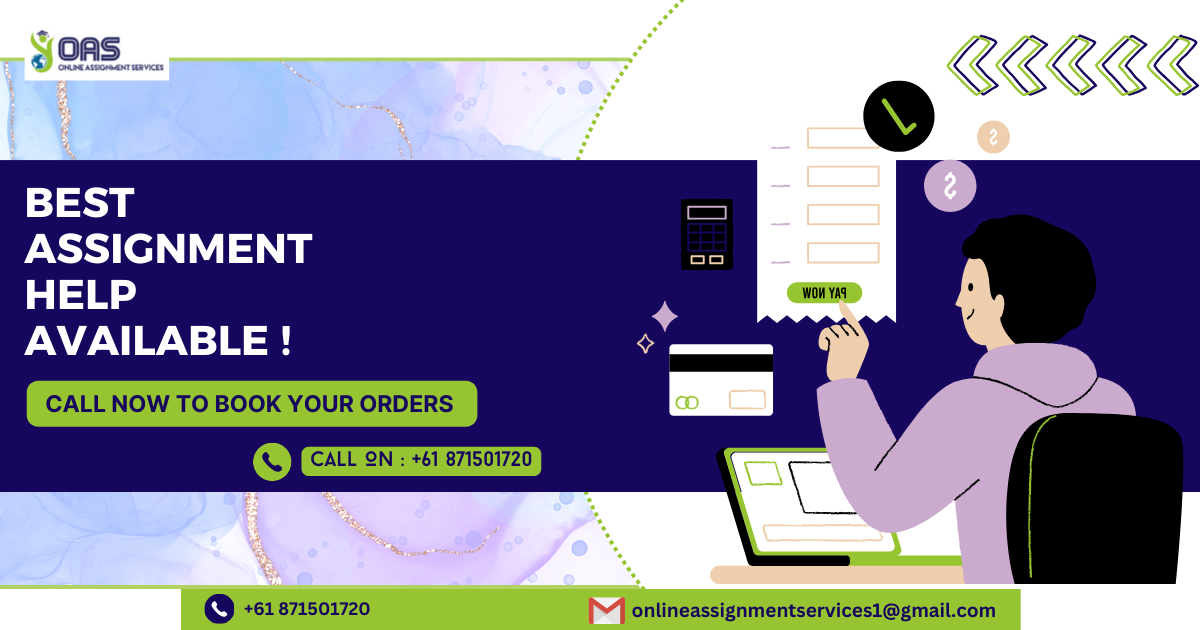
Additionally, the blog will shed light on the invaluable assistance provided by Online Assignment Services in tackling the assignments associated with these modules, including Reflective Journals, Portfolios, Essays, Critical Reflection, and Lesson Plan Assignment Help. From the nuances of understanding language structures to the complexities of mathematical concepts for young learners, students are confronted with a range of academic obstacles. These challenges can be daunting, but they also offer opportunities for growth and mastery.
Navigating the Bachelor of Early Childhood Education Program
This comprehensive program, the Bachelor of Early Childhood Education at Excelsia College, emphasizes the significance of the chosen modules and their relevance to the field. The blog will highlight the challenges that students face when dealing with assignments in these modules.
It is carefully designed to equip students with the knowledge and skills necessary to excel in the dynamic field of early childhood education.
Emphasizing the significance of the selected modules, which serve as building blocks in preparing students for real-world challenges. These modules become the stepping stones that students need to cross on their academic journey. We will also highlight the unique challenges students face when dealing with assignments in these modules.
This program of Bachelor in Early Childhood Education is majorly covered in Units by many Universities in Australia. Some of these Universities and units include:
ESH105:Curriculum and Pedagogy in Early Childhood, University of Tasmania
This unit is for students in the Early Childhood Bachelor of Education program, which focuses on teaching young kids from birth to 8. It looks at current early childhood curricula and how they can be used to help kids practice being reflective.
EPR220: Primary Mathematics Pedagogy, University of Tasmania
This unit teaches students about different types of learning theories and approaches that are suitable for teaching Early Childhood and Primary math. It’ll also show students how to do challenging tasks, collaborate with others, and solve problems.
EDU190: Aboriginal and Torres Strait Islander Culturally Inclusive Curriculum and Pedagogy, University of Tasmania
This unit looks at the relationship between Indigenous and non-Indigenous people, historical perspectives, and cultures. It helps you build an ethical mindset based on critical thinking that will help you recognize and challenge racism.
ESH347: Documenting Portfolios and Learning for Young Children, University of Tasmania
This unit is all about how important it is for young kids to have portfolios before they go to school. We’ll talk about what a portfolio is and why it’s important for them to have one.
ECE110: Child Development 1, Deakin University
In this Unit Child development theories from birth to 12 years of age are studied. They’ll look at how development happens from birth to adulthood and how important early and later stages are. They’ll also look at different domains of development, like physical, psychological, and cognitive, and how they can be supported at home and in care.
ECE111: Pedagogies and Play
It’s really important for early childhood professionals to understand the theory of early curriculum and how it’s implemented. With the release of the new book, Belonging, Becoming & Becoming, which looks at the early years learning framework in Australia, it’s even more important to look into the early childhood curriculum.
Types of Assignments and How We Help
In the dynamic sea of Bachelor of Early Childhood Education, catering to diverse abilities and learning styles is essential. One of the key aspects of addressing this diversity is the creation of varied assignment types that not only test students’ knowledge but also offer them opportunities to showcase their skills and understanding in different ways. In this blog, we’ll explore some of the common assignment types, like Reflective Journals, portfolios, Essays, Critical reflection, or Lesson plan, and how Online Assignment Services (OAS) assists students in excelling in each one.
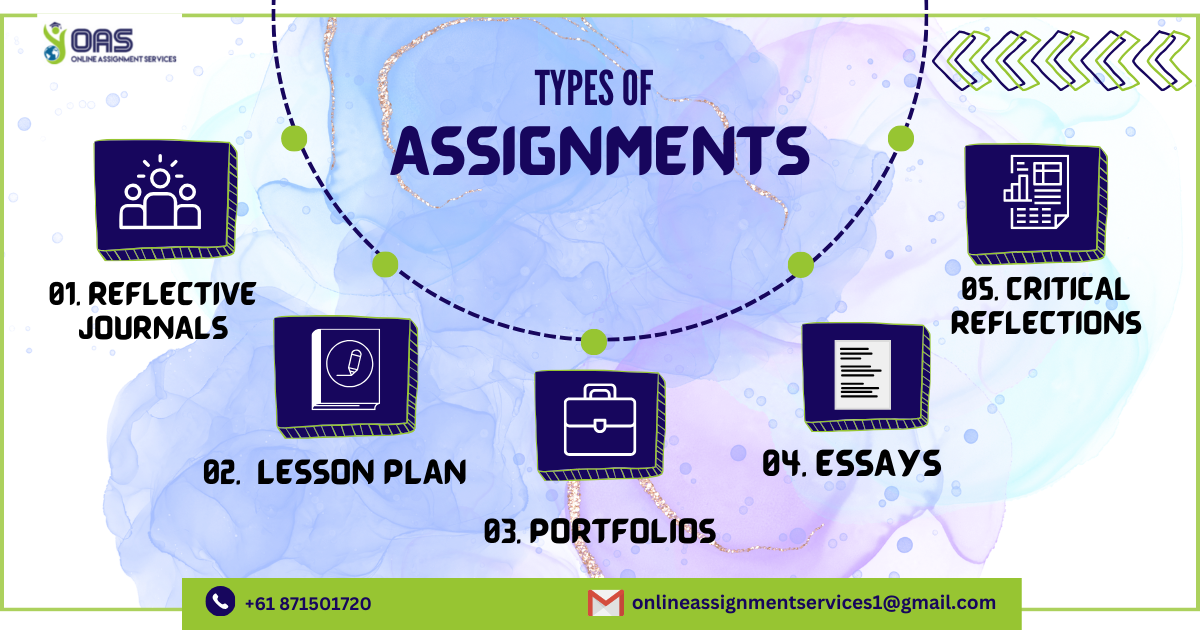 Reflective Journals Assignment Help:
Reflective Journals Assignment Help:
- Assignment Description: Reflective journals are personal diaries where students record their thoughts, experiences, and reactions to course materials, lectures, or practical experiences. These assignments encourage self-reflection and critical thinking.
- How OAS Helps: OAS supports students in crafting meaningful and well-structured reflective journal entries. We provide guidance on how to critically analyze experiences, offer insights, and relate them to course concepts. Our expert feedback ensures that these reflections are both insightful and relevant to the course objectives
-
Portfolios Assignment Help:
- Assignment Description: Portfolios are collections of a student’s work, including essays, projects, and other assignments completed throughout a course. They are often accompanied by reflective statements that showcase the student’s growth and learning journey.
- How OAS Helps: OAS assists students in curating and presenting their portfolios. We offer guidance on selecting and arranging artifacts, crafting reflective statements that illustrate progress, and ensuring the portfolio aligns with course objectives.
-
Essay Assignment Help:
- Assignment Description: Essays require students to research a specific topic, critically analyze it, and present their findings coherently. Essays come in various forms, such as argumentative, expository, analytical, or persuasive essays.
- How OAS Helps: OAS provides comprehensive support for essay assignments. Our experts assist students in selecting topics, conducting research, structuring their essays, and crafting well-argued and well-written content. We also offer editing and proofreading services to ensure essays are polished and error-free.
-
Critical Reflection Assignment Help:
- Assignment Description: Critical reflection assignments require students to examine their experiences, beliefs, and values critically. They encourage students to question assumptions and explore different perspectives.
- How OAS Helps: OAS guides students in the process of critical reflection. We offer strategies to deepen critical thinking, analyze experiences from multiple angles, and develop insightful and thought-provoking reflections that meet assignment requirements.
-
Lesson Plans Assignment Help:
- Assignment Description: Lesson plans are a common assignment in education programs. Students are tasked with designing instructional plans for specific topics or objectives, including learning outcomes, activities, assessments, and resources.
- How OAS Helps: OAS supports students in creating well-structured and effective lesson plans. We provide guidance on defining clear learning objectives, selecting appropriate instructional methods, and aligning assessments with objectives to ensure that the lesson plans are pedagogically sound.
These diverse assignment types challenge students to apply their knowledge and skills in various ways. OAS stands ready to assist students at every step of the assignment process, offering guidance, feedback, and expertise to ensure their success. Whether it’s reflective journals, portfolios, essays, critical reflections, or lesson plans, OAS is dedicated to helping students excel in their assignments and reach their academic goals.
Bachelor of Early Childhood Education Assignment Examples:
-
EDEC204: Foundations of Language Structures and Modes for Early Childhood Assignment Help
EDEC204 is a fundamental module in the Bachelor of Early Childhood Education program, aiming to equip students with a deep understanding of language structures and models appropriate for early childhood education. We’ll delve into the course content, the significance of assignments, and the common struggles students face when tackling them
The assignment required students to maintain Reflective Journals, a task that requires insight, analytic skills, and a profound understanding of language development in young children. We provided expert guidance on maintaining reflective journals and Portfolios that capture the essence of language development. Our assistance ensured that your journals and Portfolios are not only comprehensive but also reflective of the theories and practices covered in EDEC204.
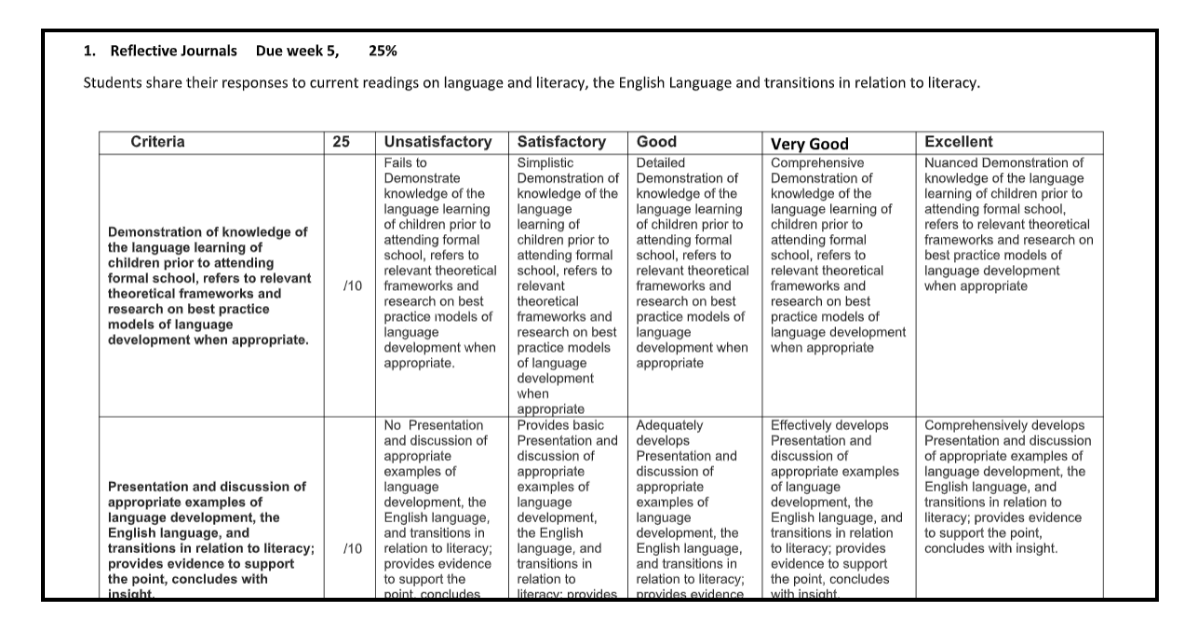
In essence, our support for the Reflective journal assignment in EDEC204 was characterized by a rigorous exploration of language development in early childhood. It was not just a cursory overview; it was a deep dive into the theoretical foundations, supported by a wealth of examples that vividly illustrated each concept. Our assistance for the EDEC204: Foundations of Language Structures and Modes for Early Childhood Assignment, particularly focusing on the criteria for the Reflective journal assignment included:
-
Demonstration of Knowledge of Language Learning in Children:
We began by establishing a strong foundation in the theoretical underpinnings of language development in young children. We delved into various influential theoretical frameworks and research that have shaped our understanding of how children acquire language before formal schooling. Our approach was comprehensive, drawing from renowned experts in the field, and we ensured that these theoretical foundations were solidly integrated into our work.
-
Presentation and Discussion of Language Development Examples:
With the theoretical background set, we proceeded to present and discuss examples of language development, specifically in the context of the English language. These examples were not generic; they were selected to highlight different stages of language acquisition, such as early phonological development, vocabulary growth, and syntactic understanding. Each example was supported by relevant evidence, whether it was from empirical studies, real-life observations, or practical scenarios.
-
Transitions to Literacy:
We explored the pivotal phase of transitioning to literacy. This segment was a critical bridge between early language development and formal education. Our discussion included the development of phonemic awareness, decoding skills, and comprehension strategies, all of which are essential for early literacy.
-
Insightful Conclusions:
Our reflective journal assignment did not conclude abruptly. Instead, we added a layer of insight to our discussion. The insight was not a superficial observation but rather a deep understanding of the implications of language development and literacy transitions in the early years of a child’s life. We considered the long-term consequences of these early experiences, pondering how they might affect a child’s future success in academics and life in general. We also highlighted the practical implications for educators, caregivers, and policymakers.
We assisted students with a portfolio assignment that included the creation of three lesson plans, each demonstrating an understanding of contemporary theories and pedagogy in the context of early years of school:
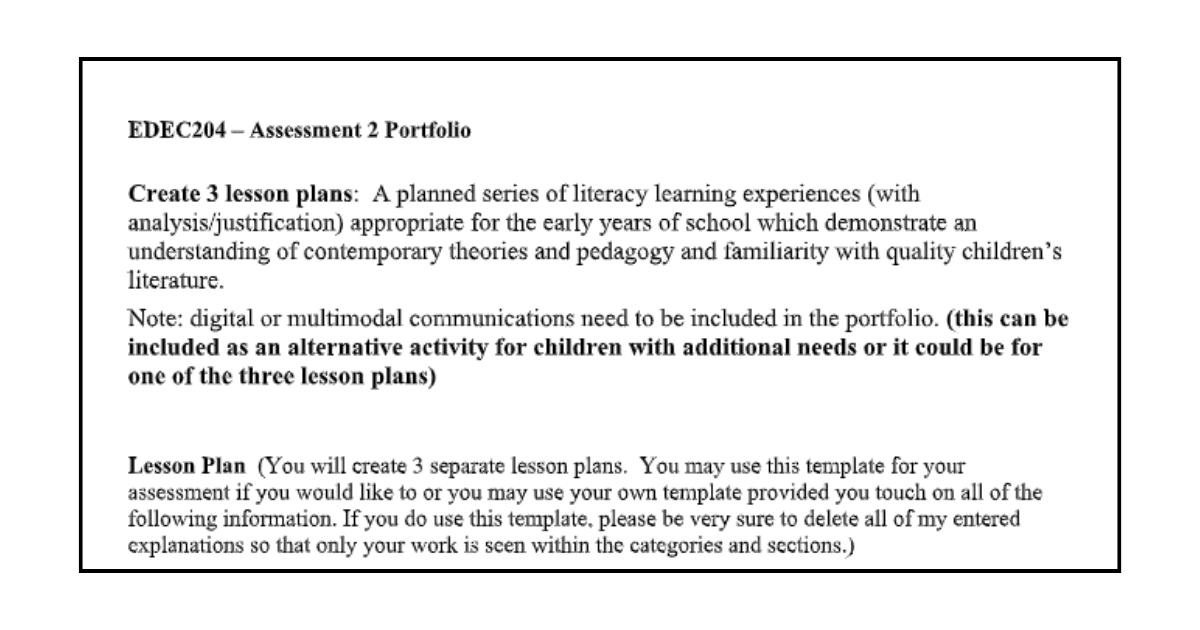
-
Lesson Plan 1- Phonemic Awareness and Multimodal Learning:
For the first lesson plan, we meticulously designed a series of literacy learning experiences that emphasized phonemic awareness, a fundamental aspect of early literacy. This lesson was rooted in contemporary theories that underscore the importance of building strong phonological skills as the foundation for reading and writing. To add a modern twist, we incorporated multimodal communication strategies, recognizing that children today are exposed to a variety of communication modes, including digital.
-
Lesson Plan 2 – Storytelling with Quality Children’s Literature:
The second lesson plan revolved around the art of storytelling, utilizing quality children’s literature. We carefully selected a contemporary and well-regarded children’s book that aligned with the principles of effective literacy instruction. The lesson plan emphasized the importance of narrative comprehension and vocabulary development.
-
Lesson Plan 3 – Differentiated Learning and Digital Alternatives:
Our third lesson plan was designed with a focus on differentiation to accommodate diverse learning needs. This plan included alternative activities for children with additional needs, emphasizing inclusivity and accessibility. In addition to traditional teaching methods, we proposed using digital and multimodal resources to cater to students with varying abilities. This could involve adaptive digital tools and interactive learning apps that provide personalized support for children with special needs. We justified this approach by explaining how technology can provide tailored learning experiences and foster independence for students with additional requirements.
Each of our three lesson plans not only adhered to contemporary theories and pedagogy but also harnessed the power of quality children’s literature and digital/multimodal communication to create engaging and effective literacy learning experiences in the early years of school.
Our portfolio was a testament to our deep understanding of the evolving landscape of early childhood education and our commitment to providing innovative and inclusive learning opportunities for all students.
2. EDEC203: Developing Mathematical Concepts in Early Childhood Assignment Help
EDEC203 focuses on developing mathematical concepts for young learners. In this blog we will explore the curriculum and assignments associated with this module, emphasizing the complexities students encounter when working on mathematical concepts in early childhood. This module calls for students to curate a Lesson Plan and write a Critical Reflection that delves deep into the world of mathematics in early education.
Our experts bring a wealth of knowledge in early childhood mathematics to help you craft captivating Lesson Plans and Reflections. Our team is well-versed in the nuances of teaching diverse learners and can assist you in creating insightful and practical solutions. We understand the importance of presenting mathematical concepts in an engaging and informative manner, making them more approachable and understandable.
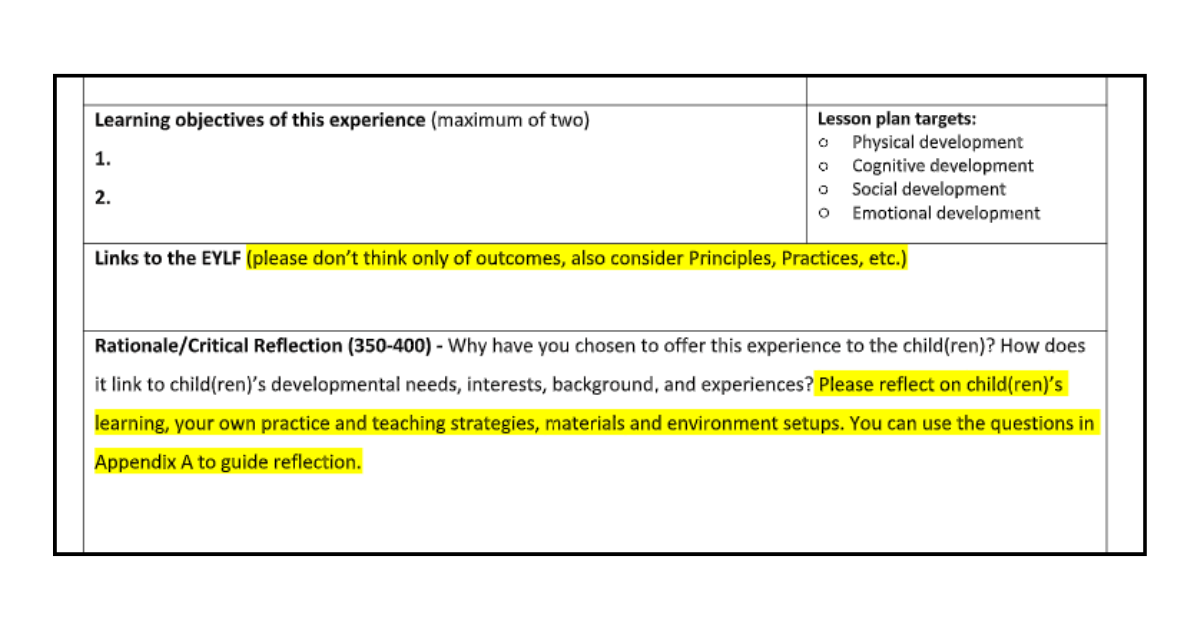 In our assistance for the EDEC203: Developing Mathematical Concepts in Early Childhood Assignment, we contributed to the creation of a well-structured Lesson Plan and a comprehensive critical reflection, focusing on the following criteria:
In our assistance for the EDEC203: Developing Mathematical Concepts in Early Childhood Assignment, we contributed to the creation of a well-structured Lesson Plan and a comprehensive critical reflection, focusing on the following criteria:
-
Lesson Plan Curation:
For the Lesson Plan, we ensured that it was designed to develop mathematical concepts effectively in early childhood. We started by aligning the content with the specific learning objectives and developmental needs of the children. The lesson plan included clear and engaging activities that promoted mathematical thinking and problem-solving, considering the age and abilities of the target audience.
Furthermore, we provided a diverse range of materials and resources, making sure that they were age-appropriate and accessible. This enabled the children to engage actively with the mathematical concepts being taught. We also incorporated various teaching strategies to cater to different learning styles and abilities, ensuring that the lesson was inclusive.
-
Critical Reflection:
In the Critical Reflection section, we thoroughly addressed the criteria for rationale and critical reflection. We explained why we had chosen the particular experience for the children, linking it to their developmental needs, interests, backgrounds, and previous experiences. This involved a deep analysis of the children’s current stage of mathematical development and how the proposed experience would enhance their learning journey.
We also considered the learning environment and how it supported the lesson plan, highlighting the importance of an engaging and organized setup. Furthermore, our reflection touched upon our teaching strategies and practices, discussing their effectiveness in facilitating the children’s understanding of mathematical concepts.
We took advantage of the provided questions in Appendix A to guide our reflection, ensuring a well-rounded analysis that covered all relevant aspects of the lesson plan and its alignment with the children’s needs and the broader educational context.
3. EDEC201: Teaching Students with Diverse Abilities Assignment Help
EDEC201 is designed to prepare educators for the diverse needs of students in the Bachelor of Early Childhood Education setting. We’ll delve into the course objectives and the challenges associated with assignments like Essays. Our guidance extended to crafting essays that were both informative and captivating.
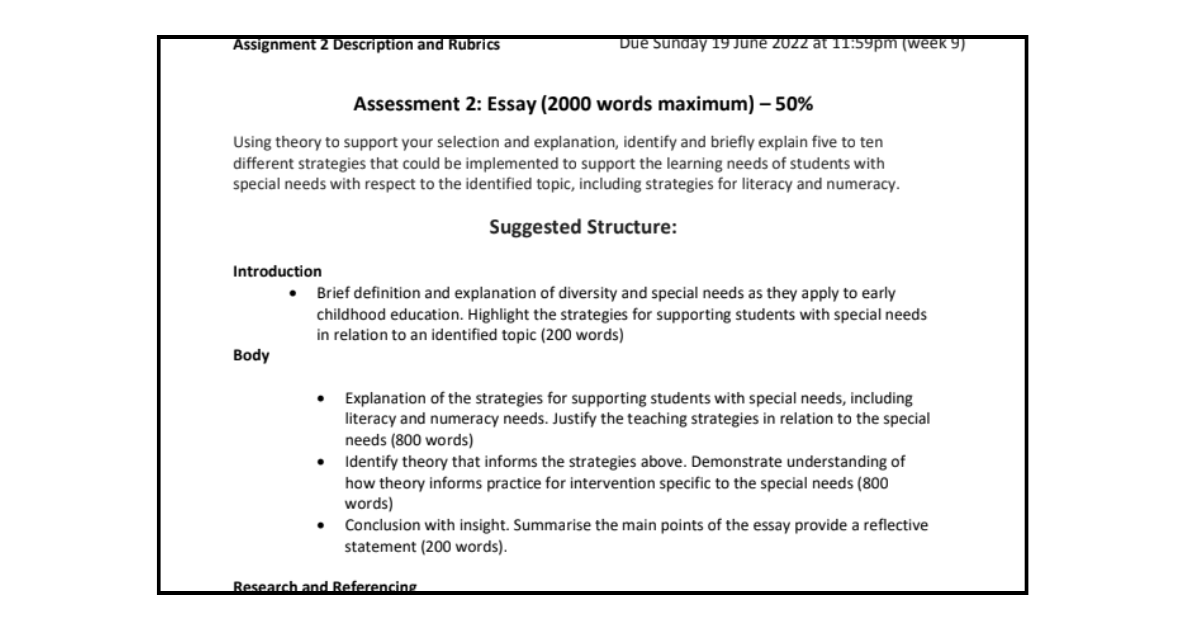
In our assistance for the EDEC201: Teaching Students with Diverse Abilities Assignment, we adhered to the specified criteria for the Essay assignment, which required the identification and explanation of strategies to support the learning needs of students with special needs, especially in the context of literacy and numeracy. Our approach was structured as follows:
-
Introduction (200 words):
We commenced the essay with a clear introduction that defined diversity and special needs within the scope of early childhood education. We provided a concise but comprehensive explanation of these terms, setting the stage for a discussion of strategies to support students with special needs. We emphasized the importance of addressing these needs in education.
-
Body (1600 words):
The body of the essay was the core of our work. In this section, we meticulously elaborated on the strategies for supporting students with special needs, focusing particularly on literacy and numeracy. We identified and explained these strategies, drawing from a diverse range of approaches. Each strategy was justified in the context of special needs, considering how it could effectively address the unique challenges and requirements of students with diverse abilities.
Furthermore, we integrated relevant theoretical frameworks into our discussion. We demonstrated a profound understanding of how theory informs practice when it comes to interventions tailored to the specific needs of students with diverse abilities. This part of the essay showcased our ability to connect theory with practical application, illustrating how educators can effectively implement strategies informed by research and educational theory.
-
Conclusion (200 words):
The conclusion provided a concise summary of the main points presented in the essay. We highlighted the significance of addressing the learning needs of students with special needs and the role of well-informed strategies.
Additionally, we included an insightful reflective statement, emphasizing the importance of continuous adaptation and improvement in teaching practices to meet the diverse and evolving needs of students with special requirements.
-
Research and Referencing:
Throughout the essay, we ensured robust research by citing credible sources and adhering to proper referencing guidelines. This strengthened the validity and reliability of the information presented, reinforcing the quality of our work.
Benefits of Choosing Online Assignment Services
Online Assignment Services is a beacon of hope for students of Excelsia College, offering professional guidance and support in completing assignments for EDEC204, EDEC203, and EDEC201 modules from the Program Bachelor of Early Childhood Education.
Numerous advantages of seeking assistance from OAS are discussed here. The benefits include saving time, reducing stress, improving assignment quality, and increasing the likelihood of achieving higher grades.
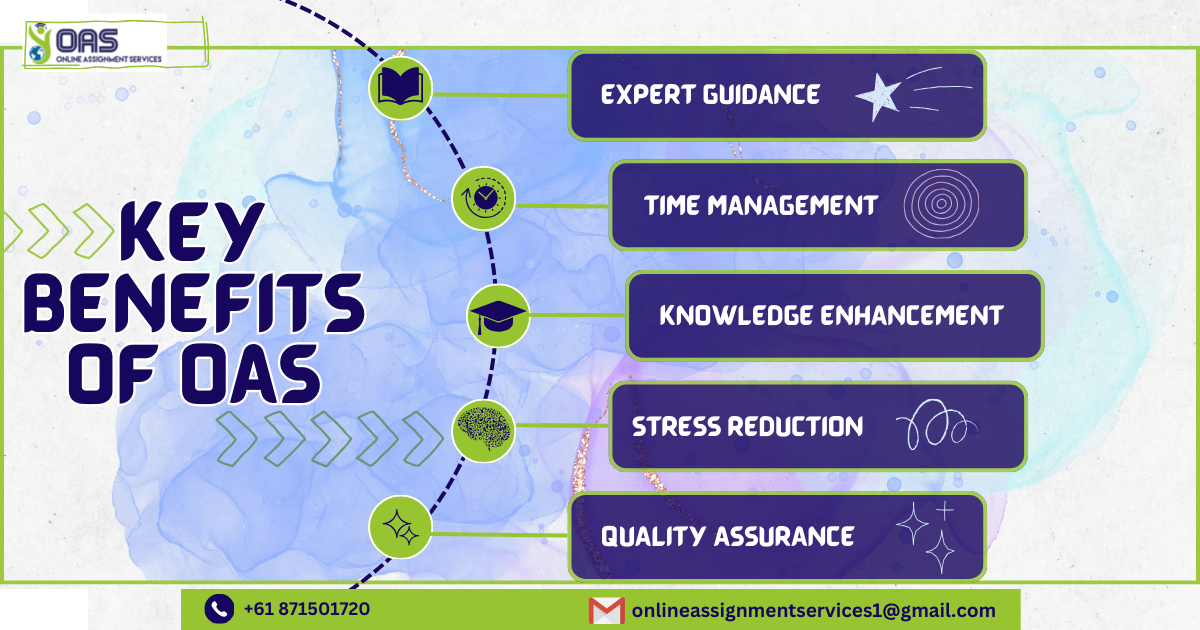
- Expert Guidance
Our team comprises educators and experts who specialize in early childhood education. Their deep understanding of the field ensures that you receive insightful guidance throughout your coursework.
- Time Management
Balancing coursework, part-time jobs, and personal commitments is a daunting task. We provide you with the support needed to manage your time more efficiently, allowing you to focus on your studies without compromising on other responsibilities.
- Quality Assurance
We prioritize the quality of your assignments, ensuring that they meet the highest academic standards. From grammar and formatting to content quality, we guarantee excellence in your submissions.
- Stress Reduction
Looming assignment deadlines can be a significant source of stress. Our support not only ensures timely completion but also alleviates the stress associated with these deadlines, providing you with peace of mind and a clear head to focus on your coursework.
- Knowledge Enhancement
We go beyond the completion of assignments. Our assistance enhances your understanding of the course material, contributing to better performance in examinations and future coursework.
Our Booking Steps
Step 1: Connect with us
Email us with all the info you want about your project. We want to know what’s on your mind, what you need, and anything else you have in mind. Your input is like the first scratch on the surface of your project.
Step 2: Engage with Expertise
When you send us an email, our team of professionals gets right to work. We don’t just look at your project, we get right into it. We take the time to get to know you and what you need, so we can give you exactly what you want.
Step 3: Ask Questions
If you have any questions or doubts about your assignment, don’t hesitate to reach out to us. We’ll make sure to get all the details and make sure we know exactly what you’re talking about. We’ll have a chat to clear things up and make sure everything is clear.
Step 4: Fair Pricing
Once we figure out what’s going on with your project, we’ll give you a price that’s fair and reasonable. There won’t be any hidden fees or hidden costs – just open and affordable.
Step 5: It’s a deal!
Once you’re satisfied with the cost, we’ll get down to business. Just give us your go-ahead and we’ll be on our way.
Step 6: Details and Deadlines
We’ll take care of all the details and give you a timeline so you know when to expect the finished product.
Step 7: Experts take over
Your project will then be taken care of by our local experts. These people are experts in their field and are committed to providing you with the best quality.
Step 8: The Big Reveal!
Once you’ve got your project ready to go and it meets all the requirements, we’ll be sending it to you. Get ready for your project to take the stage!
Step 9: Success Always
We can’t wait for you to get your assignment and see how it goes! Your success is our top priority, and nothing makes us happier than to see you happy.

Online Assignment Services stands as your reliable partner in your pursuit of excellence within the Bachelor of Early Childhood Education at Excelsia College. Our commitment to your educational journey ensures that you not only meet academic expectations but also thrive in your role as an educator, profoundly impacting the lives of young learners.
Reach out to us through email: onlineassignmentservices1@gmail.com or via
FB: https://www.facebook.com/OnlineAssignmentServices,
Messenger: http://m.me/OnlineAssignmentServices
You can also call us through our WhatsApp: +44 7956859420 / +44 7700174710 or
Call: +61 871501720 for any further inquiry!
Get in touch soon to ensure timely and quality delivery!
